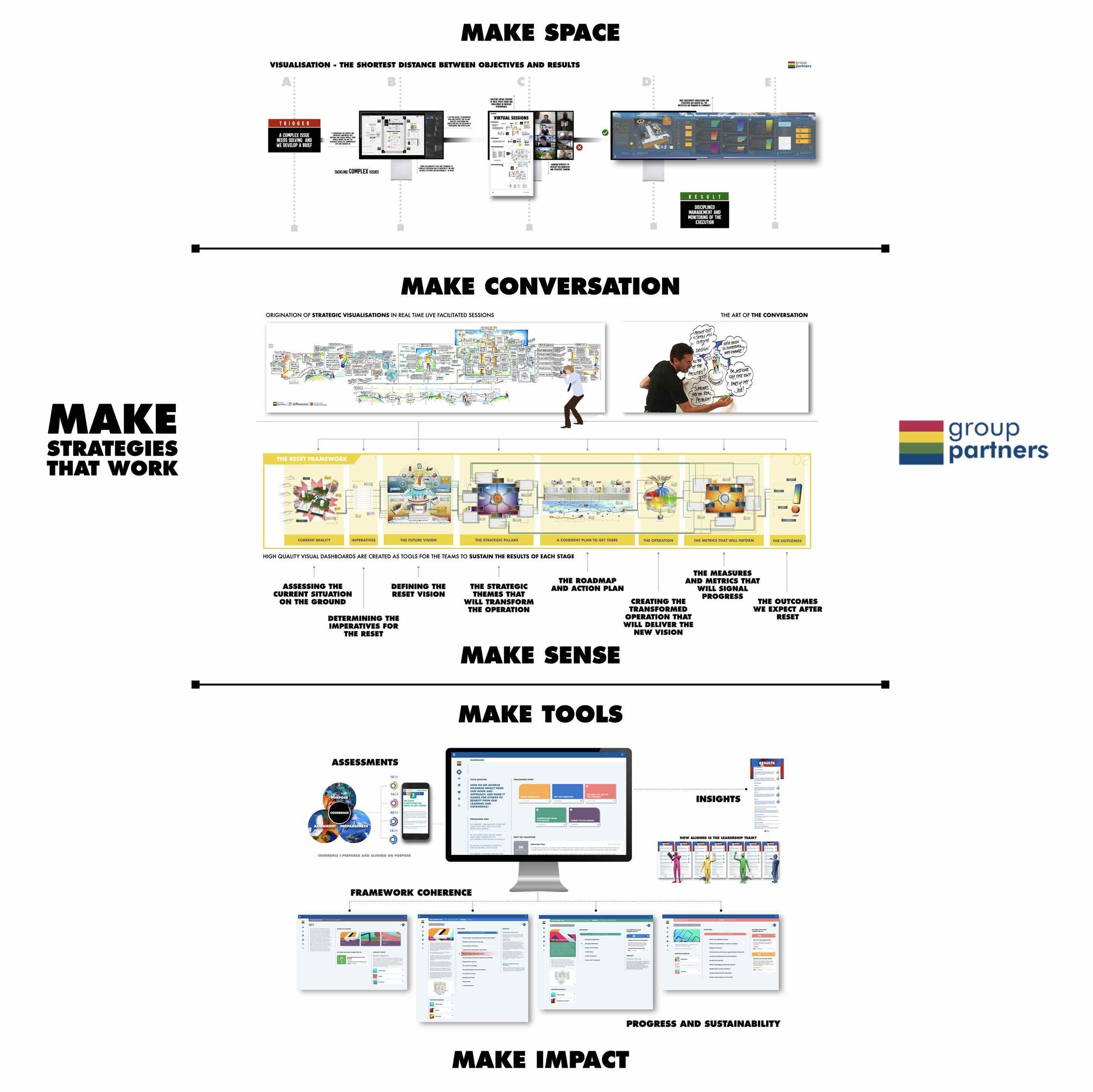THE ART OF THE QUESTION
It’s Been A Thing Of Ours For Ever.
Let’s not solve the wrong problem really well. That’s been our mantra for well nearly two decades. When it comes to making a strategy that works, unless the question is correct the answer never will be.
Understand Or Misunderstand?
“Most misunderstandings in the world could be avoided if people would simply take the time to ask, “What else could this mean?” - Shannon L. Alder
“I would rather have questions that can't be answered than answers that can't be questioned.” - Richard Feynman
In Structured Visual Thinking™ questions are our weapons.
As with all weapons we need to be skilled in their use or the result can be fatal.
Questions are about discovery and and resolution.
A badly aimed question can put us on a path to nowhere.
Answers to wrong questions create cycles of waste and perpetuate myth-laden situations.
We must be prepared to ask ‘what else could this mean?’ - keep asking more and more difficult questions until we know why, how and what does this mean.
“Judge a man by his questions rather than by his answers.” - Voltaire
Framework Science Is Our Antidote To Complexity.
THE FUTURE IS WHAT YOU MAKE IT
We can’t ignore that the world is as chaotic as it is remarkable. Nor that we are individually ill-equipped to deal with the challenges we face figuring out ways through to be successful. That success will only happen if we can make the best choices.
Choices can only be declared good when we’ve answered the question- “Which is the least bad choice?”
“The scientist is not a person who gives the right answers, he's one who asks the right questions.” - Claude Levi-Strauss
BEING A LEADER TAKES COURAGE.
We’ve defined a ‘leader’ as one who is prepared to ask the unthinkable to arrive at the unquestionable. To make sure they’ve done all they can to develop the right path.
“Life is filled with unanswered questions, but it is the courage to seek those answers that continues to give meaning to life. You can spend your life wallowing in despair, wondering why you were the one who was led towards the road strewn with pain, or you can be grateful that you are strong enough to survive it.” - J.D. Stroube
Overcoming The Defensive
John Berger a Wharton School Professor of Marketing has found five barriers that come up when people are being pushed to choose or asked to think differently or act in ways they usually wouldn’t:
Reactance: people’s tendency to be defensive and push back when they are pushed.
Endowment: the amount of time or money someone has sunk into a belief or practice — where they become attached to what they're doing already.
Distance: when people can’t relate to the other perspective or idea because it’s too much of a “leap” beyond their current belief frameworks.
Uncertainty: new things or ideas often feel too risky to try or adopt.
Corroborating evidence: when people simply demand more information or proof to change.
Mastering the art of questioning has never been so important in getting the answers we all need.

